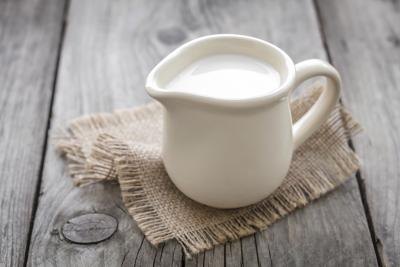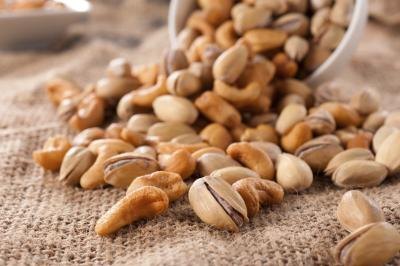
Overview
Pheylketonuria (PKU) is a genetic disorder in which the body is not able to process an amino acid called phenylalanine, according to MedlinePlus.com. High levels of phenylalanine can damage the brain and lead to mental retardation. All babies born in the U.S. must have a screening test for PKU. Phenylalanine is mostly found in high-protein foods. High-protein foods should be avoided by patients with PKU.
Fish, Poultry, Red Meat and Dairy Products

Brain damage can be prevented if patients with PKU are treated with a special diet that is low in phenylalanine. In the PKU diet, animal protein is avoided because it contains the highest amounts of phenylalanine. Examples of animal protein to be avoided include red meat, fish, poultry and milk and milk products. PKU patients are to eat low-protein foods such as low-protein breads, pastas and cereals. Babies with PKU are often fed a special formula containing high protein and low phenylalanine. People with PKU who are on this special diet from birth or shortly thereafter develop normally and often have no symptoms of PKU, according to MedlinePlus.com.
Dried Beans and Peas and Nuts

Patients with PKU should avoid vegetable protein such as dried beans, peas and nuts as they contain high amounts of phenylalanine, according to MedlinePlus. Examples of nuts to avoid include almonds, hazelnuts, peanuts, chestnuts, pistachios, walnuts, cashewnuts, pecans and macadamias. PKU patients are usually advised to eat a lot of fruits and vegetables because they contain little phenylalanine.
Aspartame

Patients with PKU should avoid products containing the artificial sweetener aspartame, according to MedlinePlus. When digested, aspartame produces amounts of phenylalanine considered dangerous to PKU patients. Examples of products that may contain aspartame include low-fat yogurt, soft drinks, breath mints, candy, sugar-free gum, gelatin, chewable vitamins, cold medicines, pudding and hot cocoa mixes. PKU patients should make sure they read food labels before buying these products.